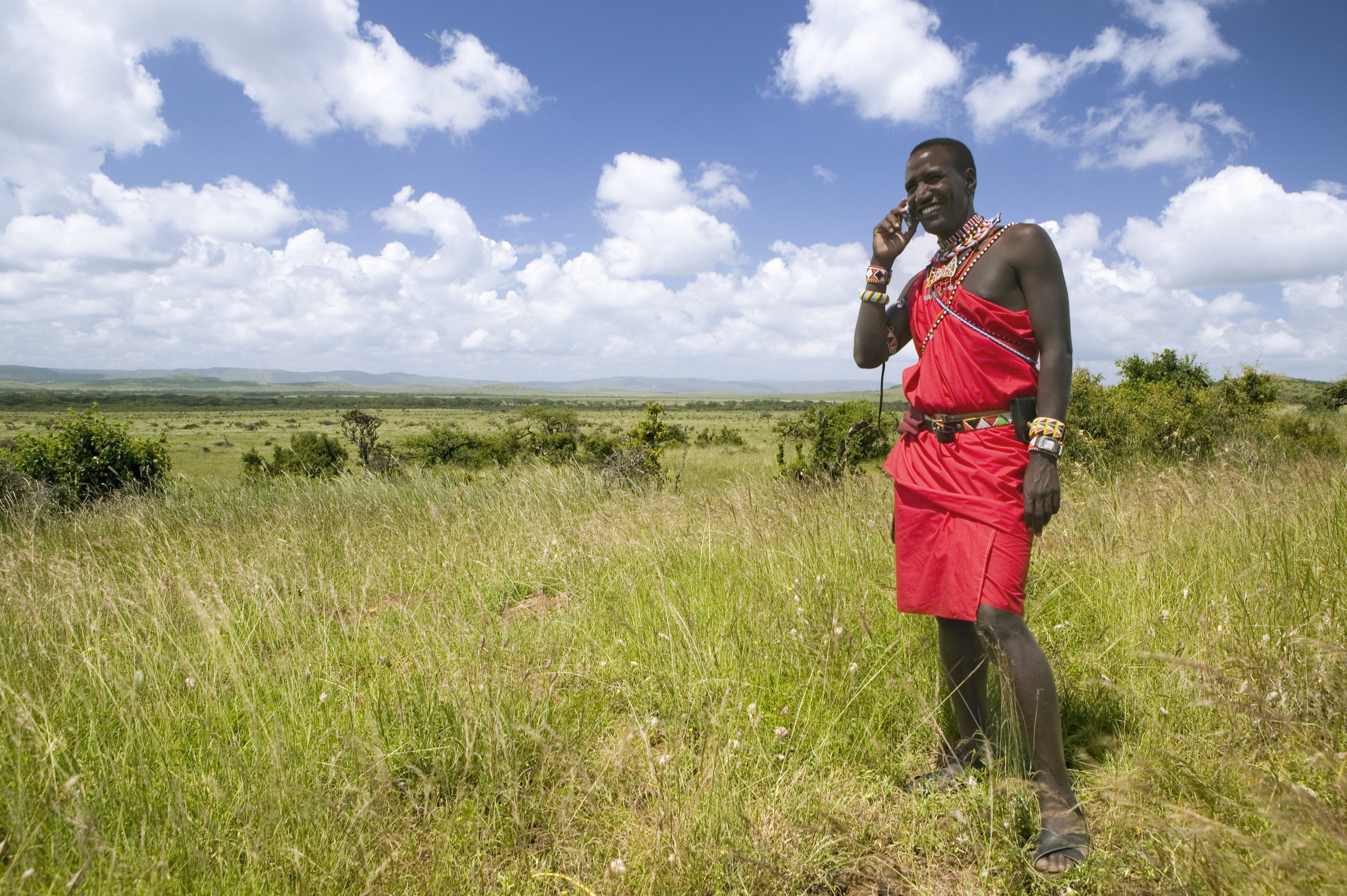Many African countries like to think that certain areas of their economies have already leapt well out of the pond. But is this actually the case?
For mobile money, it is. A report by American research firm Boston Consulting Group (BCG) found that Kenya and Ghana have the second and third highest mobile payment usage rates in the world, after China.
The study, Five Strategies for Mobile-Payment Banking in Africa, found that transactions via mobile wallets and phones were the equivalent of 87% of GDP in Kenya and 82% in Ghana. The World Bank has recognised Ghana as the fastest-growing mobile money market in Africa over the last five years.
The report estimates that mobile payments revenue in Africa could rise from $3.5bn today to between $14bn and $20bn in 2025.
How can Africa benefit from the NFT craze?
As the world of finance is slowly being turned on its head by new and exciting technologies and asset classes, Africa is no exception. The latest craze, along with satirical cryptocurrencies, is non-fungible tokens (NFTs).
The blockchain technology, which is mainly bought and sold with the crypto Ethereum, is used to certify that a digital asset is unique. Although the technology was created in 2014, the tokens shot to fame this year as artists sold digitised versions of real-world objects like paintings, photographs and videos for staggering amounts of money.
Africa should not be overlooked as a key player in the distributed ledger game.
In 2020, Nigeria traded more cryptocurrency than any other country in the world except the US and Russia. Faced with currency volatility and a lack of faith in traditional forms of investment, many Nigerians see cryptocurrencies as a more secure form of wealth creation.
However, while savvy investors are piling into NFTs, artists and content-creators look set to benefit the most from the new technology. African artists have traditionally struggled to monetise their work. The marketplace pays less for African art forms and is dominated by western art houses that take large cuts during auctions.
One benefit of NFTs is that artists can sell digital assets directly to buyers, thereby cutting out the middlemen. The other is that the buyer and seller are forever linked on blockchain, meaning that every time the asset is traded on the secondary market the artist will claim royalties.
African artists have wasted no time in taking advantage of the possibilities. Kenya-based digital media company Picha Images held one of the first NFT auctions in Africa earlier this year, featuring the work of the award-winning photographer and filmmaker Rich Allela.
In April, a trio of South African founders launched a website called Momint that bills itself as the country’s first NFT marketplace. Eliud Kipchoge, Kenya’s record-breaking marathon runner, auctioned off two digital images of his career highlights for around $37,000. Watch this space.
Will city authorities build urban Africa right?
Around 55% of the world lives in urban areas and this will increase as millions of people migrate to cities every year in search of a better life. By 2050, this number is projected to surpass two-thirds of the global population and sub-Saharan Africa and South Asia will be responsible for much of the growth.
This leaves Africa’s urban planners with a daunting task. Already many of Africa’s lower-income inhabitants are forced to walk down dangerous roads without any pavements as they commute to work, often from informal settlements on the outskirts of large cities. In some cities like Nairobi and Kigali, for example, this is slowly changing but there is still a long way to go. Cycle paths, for instance, largely remain a distant dream.
A landmark World Bank study found that the most successful urban areas are those that connect growth to economic demand and then support this with comprehensive plans, policies and investments that help avoid uncontrolled sprawl. The new report, Pancakes to Pyramids – City Form for Sustainable Growth,analyses the dynamic, two-way relationship between a city’s economic growth and the floor space available to residents and businesses.
It is unclear whether startups will benefit from improved urban environments or whether many of the problems are key drivers of business. As ever, the most successful startups are those that overcome common problems with elegant solutions. Companies that work in delivery and transport, for example, rely on poor infrastructure and traffic to attract clients.
One to watch: Payhippo
Nigerian fintech startup Payhippo is hoping to solve credit problems for thousands of small retailers in Africa, by using artificial intelligence to offer loans to MSMEs. The startup raised $1m in pre-seed funding in July to expand its operations.
It has disbursed over 2,600 loans to businesses and has an impressive 97% repayment rate. Previously funded by family and friends, it raised money from notable Nigerian angels and early-stage venture builder Aidi Ventures.
Africa’s e-mobility market makes steady gains
Though one of the more overlooked sectors, Africa’s e-mobility market is making steady gains with over 50 startups working in the space and $4.9m raised since 2020, according to data collected by Briter Bridges.
With governments across the world implementing ambitious strategies to curb harmful emissions, 16% of the global bus fleet is electric and there are already 190m 2-3 electric wheelers. Startups are leading the electric vehicle drive in Africa. While there is a great diversity of companies operating in the sector, the bulk are ride-hailing companies and supply chain startups.
Kenya introduced Africa’s first 100% electric taxi-hailing service, NopeaRide, in 2017. EkoRent Africa, a subsidiary of Finnish company EkoRent Oy, signed a partnership with InfraCo Africa, an investment company of the Private Infrastructure Development Group, to pump €1m ($1.17m) into Kenya.
Other startups like Sokowatch, a supplier to small businesses, and Sendy, a delivery company, are slowly introducing electric vehicles to their fleets. Indeed, Kenya has the greatest number of e-mobility startups in Africa.
But other countries are catching up. Guraride, for example, offers a fleet of shared smart bikes, electric scooters and electric bikes in its stated aim to “provide affordable transportation, reduce carbon emission, improve air quality, and ease congestion by developing alternative means of green transport.”
The company’s push-bikes operate rather like hireable bikes in other parts of the world that are picked up at a station and dropped off somewhere else, using an app. The bikes are now available in Rwanda.
In South Africa, Mellowcabs has set up a fleet of delivery vehicles in partnership with DHL to “reinvent urban delivery”. The main investors in the space are InfraCo Africa, FactorE Ventures and the Mastercard Foundation, among others.

To keep up with the latest in African tech, subscribe to Tech54
The news on this page is taken fromTech54, a biweekly newsletter produced by African Business and Briter Bridges rounding up the most exciting developments in the world of African tech. Subscribe to the newsletter here.
Want to continue reading? Subscribe today.
You've read all your free articles for this month! Subscribe now to enjoy full access to our content.
Digital Monthly
£8.00 / month
Receive full unlimited access to our articles, opinions, podcasts and more.
Digital Yearly
£70.00 / year
Our best value offer - save £26 and gain access to all of our digital content for an entire year!
 Sign in with Google
Sign in with Google 



